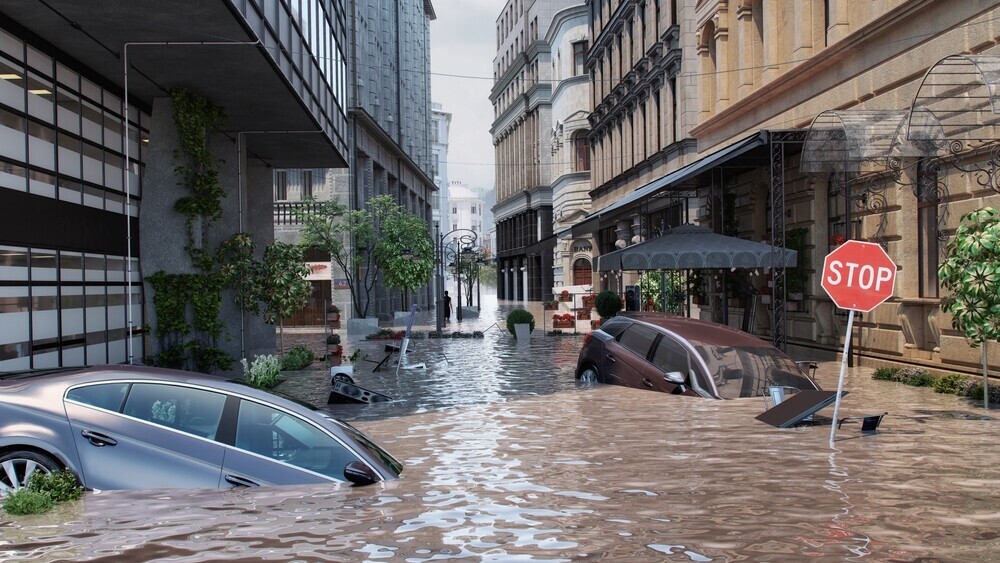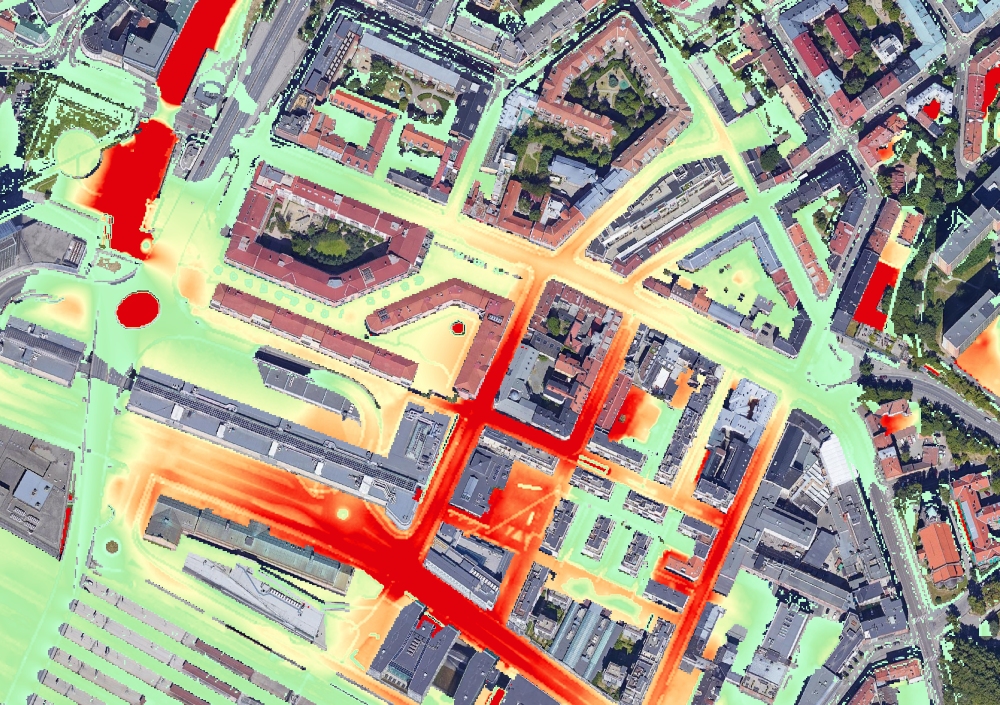
The European floods of 2021, which affected large areas of Germany and Belgium, took the lives of 209 people and cost over €30bn in damages. Catastrophic floods like these are becoming more and more common as climate change increases the frequency and intensity of extreme weather events.
While there is no easy fix for preventing floods, there are ways we can prepare for them. One company tackling this challenge head-on is Norwegian climate tech startup 7Analytics. Founded in 2020 by a team of data scientists and geologists, the startup aims to help municipalities and businesses better predict flooding and minimise damage to infrastructure.
The startup’s main offering, FloodCube, applies AI and machine learning to vast quantities of terrain and land use data in order to predict how a future flood will unfold. Whereas the weather forecast tells you when a storm is approaching, 7Analytics will tell you exactly how the water from this storm will travel through your community, to a metre-scale accuracy.
Recent advancements in computing power and AI couldn’t have come at a better time for the startup. “These technologies enable us to analyse data and generate predictive insights in a way that was impossible just a few years’ ago,” says Jonas Aas Torland, co-founder and CCO of 7analytics.

While there are a handful of other companies operating in this space in the US and Australia, Jonas says that none of them offer such high resolution data nor do they constantly reprocess data to account for physical changes in the landscape.
For governments or businesses looking to minimise damage to infrastructure, the value of these predictive insights cannot be understated. “Knowing how a flood will occur in the future gives you the gift of time,” Jonas told TNW.
“Our platform can tell you if a flood will occur in your area of interest and issue alerts 72 hours in advance so you can take all the necessary actions to protect employees and assets,” he says.
These insights are also of interest to insurers, who are always looking for more accurate ways to predict future risks to assets.
So far, 7Analytics has secured contracts with the likes of the Municipality of Bergen, construction giant Skanska, and, most recently, French oil conglomerate Total Energies.
The startup secured €2.5m in its first funding round last year, and looks to grow its customer base both in Europe and the US.

Adapting to the new climate reality
Investors are pouring trillions into climate mitigation technologies like renewable energies and EVs in an attempt to reduce carbon emissions. While essential, there is increasing acknowledgement that investing in technologies that help humanity adapt to a changing climate is an equally urgent priority.
In 2021, however, less than $50 billion — or just 10% of all climate finance — was allocated to adaptation measures such as flood and wildfire prevention, resilient agriculture, and clean water supply.
This is partly because climate adaptation tech investment has often been regarded as the realm of NGOs and government, not private capital, partly due a false perception that there is no money to be made. But this outlook appears to be shifting.
Bill Gates’s Breakthrough Energy Ventures pledged last year to expand its scope to climate adaptation technologies, while water tech firm Gradiant — which helps companies reduce water usage — hit ‘unicorn’ status last month after a $225m raise.
Michiel de Bruin, portfolio manager for Dutch investment firm Robeco, says that recent climate disasters are a “wake-up call,” directing “more attention to adaptation.”
Jonas believes that solutions like his flood prevention platform are part of this new wave of climate adaptation tech. The startup is now plotting its Series A funding round for next year, and looks to expand its offerings to predict landslides and other natural hazards.
Get the TNW newsletter
Get the most important tech news in your inbox each week.




